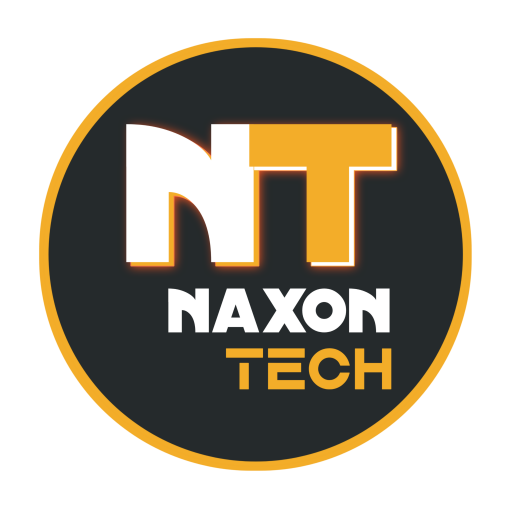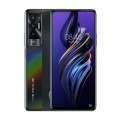- Naxon Tech
- All Products
- Nokia G21 with 90Hz Price and Specifications
Nokia G21 with 90Hz Price and Specifications



- CPU: Unisoc T610
- RAM: 4GB
- Storage: 64GB/128GB
- Display: 6.5-inch
- Camera: 50MP+2MP+2MP
- OS: Android 11
Nokia G21 with 90Hz unveiled today in Europe as the successor of the Nokia G20 which was revealed last year. As per the report, Nokia G21 features a 6.5 inches LCD display with a 90Hz fast refresh rate, HD+ resolution, and 20:9 aspect ratio. Under the hood, the smartphone is coupled with a Unisoc T610 octa-core chipset that comes coupled with ARM Mali G75-MP1 GPU.
In terms of optics, Nokia G21 with 90Hz flaunts a triple rear camera that includes a 50-megapixel primary sensor, a 2-megapixel macro sensor, and a 2-megapixel portrait lens. The back camera comes with features such as super-resolution and Night mode. For selfies, the phone boasts an 8-megapixel front-facing camera under the waterdrop notch. Nokia G21 comes with a price tag of €170 and the company offered it in two color variants Nordic Blue and Dusk. The phone will be available for purchase in Europe very soon.
Specs
General
| Released | 14 February, 2022 |
| Status | Available |
Design
| Type <strong>Design Type</strong> called form factor refers to a mobile phone's size, shape, and style as well as the layout and position of major components of phone. There are three major form factors seen in mobile phones => bar phones, folding phones and sliding phones. | Bar |
| Dimensions | 164.6 x 75.9 x 8.5 mm |
| Build | Glass front, plastic frame, plastic back |
| Weight | 190 g |
| Colors | Nordic Blue, Dusk |
Display
| Size | 6.5 inches |
| Resolution | 1080 x 2400 pixels |
Media
| FM Radio | Unspecified |
| Loudspeaker | Yes |
Camera
| Primary <strong>Camera</strong> is able to capture photographs and usually videos, The most important characteristics of a camera are the resolution (measured in megapixels), lens focus type (fixed or automatic), higher megapixel cameras are known to capture higher quality photos, but not always a good measurement of the photos quality. | 50MP+2MP+2MP |
| Video | 1080p@30fps |
| Camera Features | LED flash, HDR, panorama |
| Flash <strong>Flash Light => </strong> There is commonly two types of flash lights are used in camera mobile phones, LED Flash (LED flash offers lower power consumption with drive circuitry that takes up very little room, LEDs can be strobed faster than any other light source), Xenon Flash (xenon flash produces an extremely intense full-spectrum white light for a very short duration) | LED |
| Secondary | 8MP |
Software
| Operating System <strong>OS => </strong> Every computer system run on a base software called Operating System (OS). Operating System controls all basic operations of the computer (such as smartphone, PDAs, tablet computers and other handheld devices). The Operating System allows the user to install and run third party applications (apps), apps are used to add new functionality to the device. | Android 11 |
Hardware
| CPU <strong>CPU</strong> (Central Processing Unit) mostly known as processors, CPU processes instructions in order to carry out certain functions that make your device operate properly. Processors are often described as the brain of computers, smartphones and tablets, Smartphones and tablets rely on processors to carry out their every task, Processors are an incredibly important factor in selecting any type of computing device, including your smartphone. | Unisoc T610 |
| GPU <strong>GPU</strong> (Graphics Processing Unit) is a single-chip processor designed to rapidly manipulate and alter memory to accelerate the creation of images in a frame buffer intended for output to a display, This includes things such as lighting effects, object transformations, and 3D motion. | Mali-G57 MP1 |
| RAM | 4GB |
| Internal Storage <strong>Internal Storage</strong> is a data storage space (flash memory) mostly used in smartphones, tablets and other electronic devices where operating system, apps, music, photos, videos, files and other user data Is stored. | 64GB/128GB |
| Card Slot <strong>Memory Card Slot</strong> is a special slot for inserting a memory card. Memory cards allow you to expand the phone's built-in memory, A memory card (sometimes called a flash memory card or a storage card) is a small storage medium used to store data such as text, pictures, audio, and video, for use on small, portable or remote computing devices such as mobile phones, mp3 players, digital cameras. | microSDXC |
| Sensors <strong>Sensors</strong> are electronic components that detects and responds to some type of input from the physical environment. The specific input could be light, heat, motion, moisture, pressure and location, The output is generally a signal that is converted to use in computing systems, a location sensor, such as a GPS receiver is able to detect current location of your electronic device. | Fingerprint (side-mounted), accelerometer, proximity |
Connectivity
| SIM <strong>SIM</strong> (Subscriber Identity Module) is a small card that contains mobile network subscriber's account information. This allows the phone using the card to attach to a mobile network. The SIM card is most commonly associated with GSM and UMTS mobile networks. Moving a SIM card from one phone to another allows a subscriber to switch mobile phones without having to contact their mobile network carrier. SIM cards can also be used by a phone to store limited amounts of data, such as phone numbers and text messages. | Standard SIM |
| Bluetooth <strong>Bluetooth</strong> is a wireless communications technology for exchanging data between mobile phones, headsets, computers and other network devices over short distances without wires, Bluetooth technology was primarily designed to support simple wireless networking of personal consumer devices. | 5.0, A2DP, LE |
| Infrared <strong>Infrared</strong> connectivity is an old wireless technology used to connect two electronic devices. It uses a beam of infrared light to transmit information and so requires direct line of sight and operates only at close range. | |
| Wi-fi <strong>Wi-Fi</strong> is a popular wireless networking technology using radio waves to provide high-speed network connections that allows devices to communicate without cords or cables, Wi-Fi is increasingly becoming the preferred mode of internet connectivity all over the world. | Wi-Fi 802.11 a/b/g/n/ac, dual-band, Wi-Fi Direct, hotspot |
| USB | USB Type-C 2.0, USB On-The-Go |
| GPS <strong>GPS</strong> The Global Positioning System is a satellite-based radio navigation system, GPS permits users to determine their position, velocity and the time 24 hours a day, in all weather, anywhere in the world, In order to locate your position, your device or GPS receiver must have a clear view of the sky. | Yes, with A-GPS, GLONASS, GALILEO |
| NFC <strong>NFC</strong> (Near field communication) is a set of standards for smartphones and similar devices to establish peer-to-peer radio communications with each other by touching them together or bringing them into proximity, usually no more than a few inches. | Yes (market/region dependent) |
Data
| 4G Bands | Yes |
Battery
| Capacity <strong>Battery Capacity</strong> is a measure (typically in Amp-hr) of the charge stored by the battery, and is determined by the mass of active material contained in the battery. The battery capacity represents the maximum amount of energy that can be extracted from the battery under certain conditions. | 5050 mAh |










